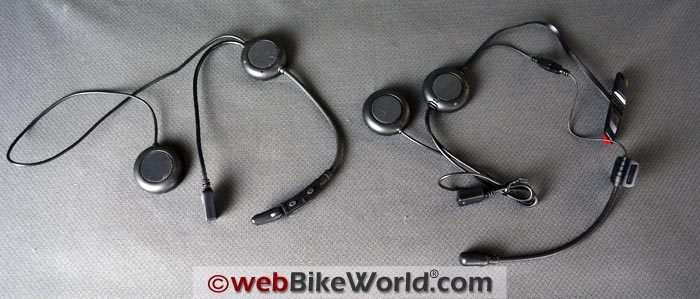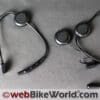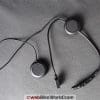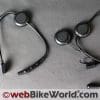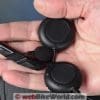The Sena 3S is a fantastic little (and I do mean little) Bluetooth motorcycle intercom system.
It does everything the Big Boy systems from just a few years ago did…and then some.
And it’s about 1/3 the cost.
You can read our complete Sena 3S review for all the details.
In that review, the only nit we picked had to do with the 3S choices. There was (and still is) the Sena 3S-B: “B” for “Boom” mic.
There’s also the Sena 3S-W. The “W” stands for “Wired” mic.
Each microphone in those intercoms is permanently connected.
The 3S-B boom mic version has the “+” and “-” controls on the end of the boom, just outboard of the mic. Good for open-face helmets, not good for full-face.
The 3S-W wired mic version places the controls on a separate low-profile stick-on thingy.
Not really a problem but many riders like a boom mic, even in a full face helmet and especially with a flip-up. It ranges from difficult to impossible to access the controls on the 3S-B boom mic version in anything other than an open-face helmet.
So our wish was to have a third version, something we called the “3S-BW”. It would be the 3S-W intercom with the remote stick-on controls, but with a connector for a boom mic.
Guess what? Sometimes wishes do come true. Sena delivered, and in record time.
Behold the new Sena 3S-BW:
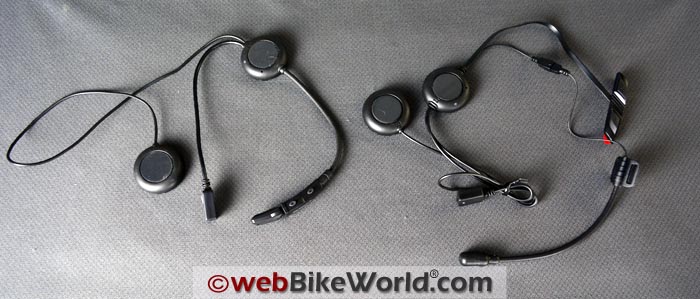
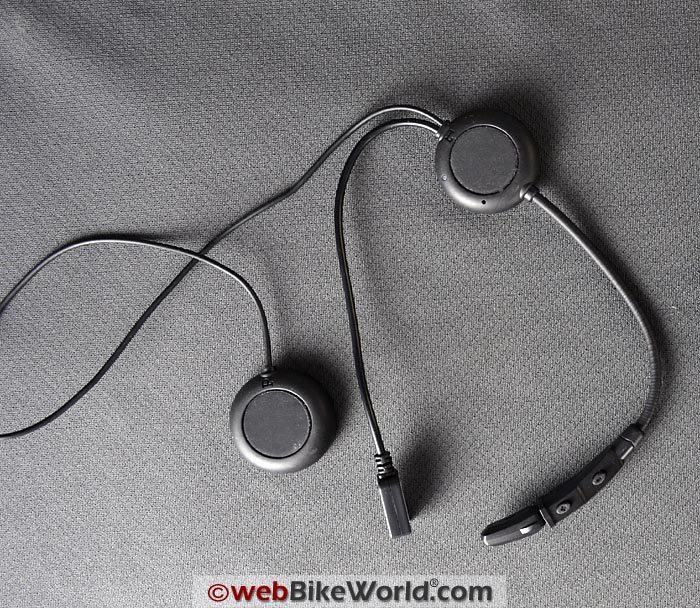
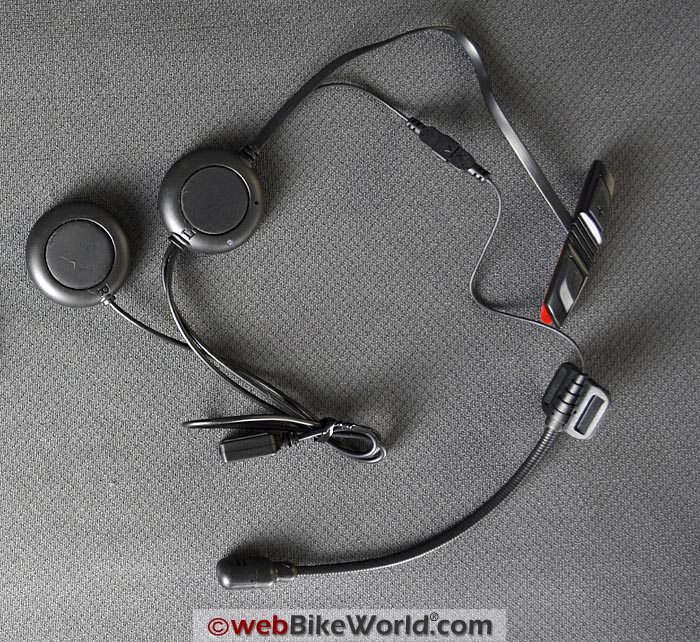
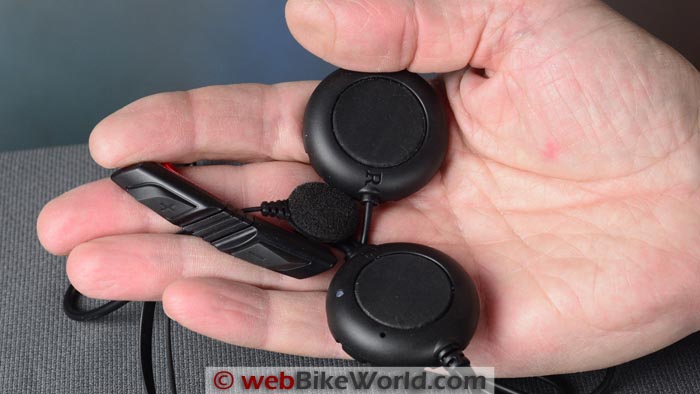
More
The 3S-WB uses the same connector as the SMH series of Sena headsets (SMH10, SMH5, etc.) so it can use the accessory wired microphone and the wired boom microphone of those headsets.
Conclusion
[asa2 tplid=”6″]B01441XA0M[/asa2]The Sena 3S-WB nicely splits the difference between the 3S-B boom mic version that is for open-face helmets and the 3S-W version for full-face helmets.
The 3S-WB will fit most flip-up helmets by mounting the hook-and-loop sticky on the inside of the cheek, outboard of the rotating flip-up visor.
This keeps the boom mic on your lips when the rotating flip-up visor is lifted.
But the 3S-WB will also work on most 3/4-length open-face helmets and full-face helmets as well. So it may be the version to buy.
Sena hasn’t yet announced a plug-in wired mic version for the 3S-WB and it may become available as an option. But if you really want the wired mic version for a full-face helmet, get the 3S-W.
Whatever you choose, you’ll be getting what is one of the best-kept secrets of any Bluetooth motorcycle intercom. The price is right at around 89 bucks and it will do just about anything the (much) more expensive intercoms do and maybe even more, if you count the 3S’s micro dimensions.
If you haven’t already, be sure to read the full webBikeWorld review of the Sena 3S.
Owner Comments and Feedback
See details on submitting comments.
From “M.R.” (September 2016): “We have been long time Sena users with the SMH-10B. We got new helmets, Nexx SX10 (review) and installed the 3S-WB in them.
Off for the first ride, anything further then 30 feet (gets) static (and) lousy range. If you want these guys for an intercom stay away, OK for rider-to-passenger, 30 foot range doesn’t get it.”
Editor’s Reply: The 3 series is really designed more as a rider-to-passenger system with short range. Because most of the antenna is more or less hidden or covered inside the helmet, range can vary quite a lot with this system compared to others.
Follow-up From “M.R.” (September 2016): This communicator is advertised to have a range of 200 meters. We discovered that it is totally unsatisfactory for bike to bike communications since it appears to have a range of less than 50 feet.
So yes, it would be fine for rider-to-passenger purposes but is worthless for bike to bike. The company should change its specifications.”
Editor’s Reply: Yes, the range estimations for any brand of intercoms are different from real world use.
Just like EPA estimations of fuel mileage — under ideal test conditions it may be 34 MPG, but in the real world it may vary from 25 to 40 MPG.
Or cell phone battery life estimations. Or tire wear estimations, etc., etc.
If you hold the Sena intercoms outside of the helmet in perfect conditions — flat road, nothing around, no electromagnetic interference — then you’ll probably get the 200 meters.
Put it in a helmet, on different bikes, on the road, with engine and bike electronics running, interference from overhead power lines, etc., then the range drops dramatically.
And the range will depend on the rider, the helmet, the bike, the installation, the environment…
I’m not apologizing for them, just letting you know the reality.


